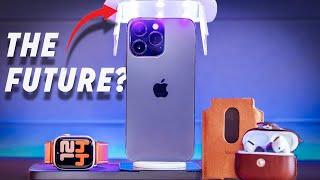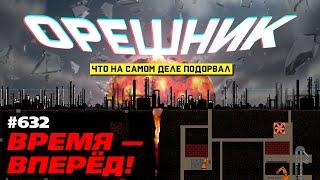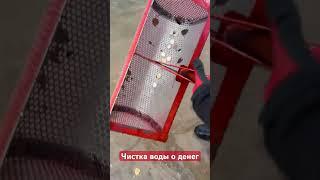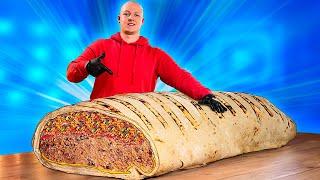![Смотреть IBM Punched Cards, Hollerith Cards [Inspection] | Nostalgia Nerd IBM Punched Cards, Hollerith Cards [Inspection] | Nostalgia Nerd](https://ruvideo.cc/img/full/SXJKa01nZW1LUG8.jpg)
IBM Punched Cards, Hollerith Cards [Inspection] | Nostalgia Nerd
Комментарии:

Sending memes to coworkers was a much more patience-involved progress back in those days!
"Guffaw! Oh, Fenwick! You and your feline photographs with humorous anecdotes attached to them! Bully! Bully I say! I'll work forthwith to send this to the boys in accounts payable, across the hall! Should take the better part of a fortnight!"

Definitely remember punched cards. I grew up in the 60s and 70s when they were still very much being used. As a matter of fact, here in the US they were used for distributing Social Security checks.
My dad was killed back in 1974, and my mom, in ill health and not able to get a job, got Social Security for us, and every month, these checks would come on these punched cards (my guess is that they were easier to process). I still keep a punched card (not a check) in my papers to remember those days.

My Mum used to punch those cards for a living for Rank.
Ответить
My first computer used tapes for storage. I'm not sure that these cards wouldn't have been more reliable.
Ответить
I like how you keep stacking them aligned together nicely and after that undo the nice stacked alignment by throwing them on the desk again and keep repeating doing that ;)
Ответить
I was working at a computer store when a lady stop by to ask for a job.
She said : I know how to punch cards...

I have a very minor quibble. I'm just nitpicking really but....
You reference ACSII throughout the video. The thing is that the first ASCII standard wasn't published until 1963 which I don't believe IBM ever adopted for punch cards. Instead they published their own encoding scheme called EBCDIC around 1963-1964 which they use to this day (it's still the native encoding for IBM and many other brands of mainframe.) Before EBCDIC IBM used "Binary Encoded Decimal" for punch cards I believe.
Thanks for the videos! Love the channel.

How the fook
Ответить
I'm surprised there was no stories of people slitting their wrists with them, it seems "excessive"
Ответить
It would be interesting to punch a Tweet across two cards.
Ответить
ASCII hadn't been established yet. EBCDIC was used by IBM during the time of the punched cards.
Ответить
How many will it take to store Doom?
Ответить
I learned to program FORTRAN using punchcards in high school back in the early 1980s... god help the poor guy who dropped his stack of cards and got them out of order!
Ответить
The character sets on punched cards actually weren't ASCII because punched cards predate the ASCII character set. Instead, several character sets are used, called the EBCDIC character sets.
Ответить
IBM developed the 80 column cards to specifically win the contract with the Nazi’s. At the time a 40 and 60 column cards were standard. The Nazi’s used punch cards to track the prisoners at Auschwitz and Dachau concentrations/death camps. IBM US wrote the computer code to track the prisoners including the way they died. Several books have been written on IBM’s involvement in making money off the death of prisoners.
Ответить
1983 to 84 and beyond we were still using them in warehouse inventory entry. 15 digit stock numbers codes and quantities. No computer screens. Just print outs. I kept that file up todate too. Huge books of 4 years kept on hand. Pain in the ass keeping them current and in order. 5 inches of like 25 x 15 computer print outs. Snake ing long plastic precursors to zipties through all the holes in the computer paper to bind them. Salute Cannon AFB 83/85 😉
Ответить
"Here he lies Molding, his dying was hard.....They killed him for folding an IBM card"....
Ответить
Amazing technology.
Ответить
Wonder if a hobbyist out there has recreated a punch card system for modern times, where a single card could back up about 512MB or more? Just for the heck of it. Maybe even EMP? If I back up for WW3 emps, I want it done in style.
Ответить
Jew round up cards D:
Ответить
how to read manually a 80 column punch card?
Ответить
Wait.. Isn't this what IBM used to track the err,.... WW2 I leave the rest to all imagination .
Ответить
My first job in computers was feeding cards into a reader!
Ответить
Hilarious.
Ответить
i still dont understand how it works.....
Ответить
Actually, with old punches, you COULD punch more patterns than they had provision for with just 1 keypress, if you used the Multipunch key (or backspaced the card if the punch didn't have one)(*) and pressed more than one key per column. Of course, this was a pain, so it was preferably used only for special codes.
Would like to see a video on unit record equipment, which was what used these cards and was used to perform computing before actual computers existed (and overlapped significantly into the early years of computers).
(*)Edit: Supposedly, on at least some keypunches (including IBM) you could achieve the same effect as a Multipunch key if you just pressed a finger down on the card really hard so that it slipped instead of advancing. Although the purpose I originally read for this wasn't for multipunching (since the IBM keypunches already had a key for this), but for giving you the ability to insert and delete when using the Duplicate Card key (which had no built-in provision for insertions and deletions) to make a corrected or otherwise altered version of an existing card. Actually, depending upon how well you could keep the card from advancing, this sounds potentially more reliable than trying to backspace it by just the right amount (manually), unless the keypunch had an actual Backspace key.

and what did Ibm famously use them for..... with Bertelsmann ?
Ответить
After all the Election Fraud, this type of Punch Card will probably become very popular, as a more secure way to process Voter Ballots.
Ответить
My grandpa still has plenty of them. He uses them as a convinient way to keep notes, since they're strong and won't get crumpled.
Ответить
Let's see. So one 256 gig microSD card can hold over 3 billion punched cards worth of data. I wonder how many cubic feet of space that would take!
Ответить
Good one
Ответить
80 characters per card.. right @Nostalgia Nerd ?? .. .. so for 1Kb (1024 bytes = 1024 characters) it would be like 12.8.. almost 13 cards..... that is not so bad 🤔.. .. but for 1Mb.. it will be 12.800 cards.. (this is getting heavy.. 🥺 literally).. and for a miserable crappy disquete?? .. .. 1.44Mb = 1440kb = 1.474.560 bytes/characters.. 18.432 cards and a really big bag.. .. because 0.02 (0.0023 pounds) grams per card is like 93 kilos (205 pounds of paper).. that is a heavy disquete.. 🥴
Ответить
We were still using them at school in the early 80s.
First lesson of computer science was how to fill in a punch card. With an HB - so they could be re-used.

Computer nerds, like me, would have a hand full of punch cards tucked behind their pocket protector. Great for keeping notes. When punched cards faded away, I had to resort to a small tablet (paper) from IBM that said THINK.
Ответить
Pretty interesting how that stack of cards could have perhaps been a valuable program for a financial institution a few decades ago, having taken many man-hours to produce. Now it's just a useless stack of paper.
Ответить
Awesome
Ответить
Would these be worth anything nowadays? A family member of mine found what looks like Japanese punch cards with univac on the bottom left of the cards in her loft.
Ответить
I think the most important, historically, use of IBM puch cards was German military logistic from WWII and its aid with the nazi “final solution”.
Ответить
the only thing i learned here was how to shuffle punch cards...!!
Ответить
can you run doom in it?
Ответить
Packs of 200? We had boxes of 2000. I used those to write programs in college and after college to write programs for the minicomputer that my company owned. In college I remember seeing graduate students carrying large stacks of cards, maybe 1000 line computer programs or data for a thesis. I still have some punched cards laying around, they make great bookmarks for that other antique data storage medium- the printed book.
Ответить
:hand-purple-blue-peace::hand-purple-blue-peace::hand-purple-blue-peace::hand-purple-blue-peace::hand-purple-blue-peace::hand-purple-blue-peace
Ответить
Worst thing is that I don’t know what it is nor how it’s used and what the system used to look like. So if you are from a generation that knows these kind of things, try telling it. Because I don’t know how to conceptualize this thing… not very informative at all.
Ответить
Where does the paper that is punched out go?
Ответить
As a person who worked with punch cards BEFORE the advent of a computer, i used "unit record" equipment. Machines like the IBM 024 keypunch, IBM 083 card sorter, IBM 407 accointing machines and such (still remember coding using plugboards & wires)
Then i moved o to tje 1401, 360, 370b 4300, 3090 etc.
Also for most of the readers the coding on punch cards was NOT EBCDIC nor ASCII it was the HOLLERITH code. EBCDIC was another form of coding that made up the 256 bit combinations on IBM computers. EBCDIC or Extended Binary Coded Decimal Interchange Character, was before ASCII or American Standard Code for Informational Interchange.
I am a retired CIO that now vounteers, repairs, teach about vintage computers in a computer museum

![IBM Punched Cards, Hollerith Cards [Inspection] | Nostalgia Nerd IBM Punched Cards, Hollerith Cards [Inspection] | Nostalgia Nerd](https://ruvideo.cc/img/upload/SXJKa01nZW1LUG8.jpg)


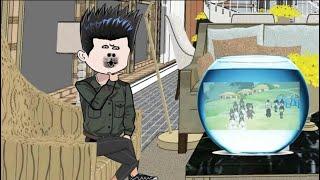
![[LOCK&LOCK] Organize your freezer, Multi Lock TVCF [LOCK&LOCK] Organize your freezer, Multi Lock TVCF](https://ruvideo.cc/img/upload/RXZ6aDczMEFqRkg.jpg)
